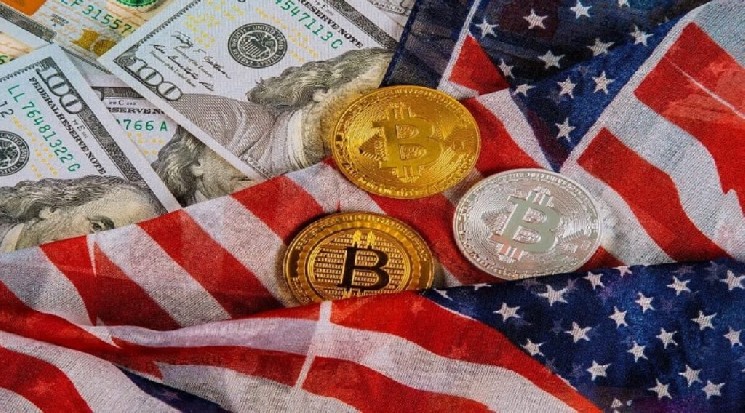During the Russian-Ukrainian war, Telegram usage surged, becoming a platform for war correspondents, volunteers, and ordinary people to transmit key information. After the outbreak of the war, Ukrainian users relied on Telegram to an unprecedented degree. People used Telegram to release war news, coordinate rescue operations, and even in some places,
Author: Aiying 艾盈, AiYing Compliance
In the global technology industry, the news that Telegram founder Pavel Durov was arrested in France was like a bombshell. Durov, a widely respected and controversial entrepreneur, has become an iconic figure in the Internet world for his firm support for privacy protection and freedom of speech. However, as he was arrested by police at Paris-Le Bourget Airport in France, the halo surrounding him was instantly shrouded by the harsh legal reality. This incident quickly attracted widespread attention and discussion around the world.
Not only was the tech world shaken, the price of Toncoin, the cryptocurrency behind Telegram, plummeted after the news of Durov's arrest, falling by as much as 13%. This financial volatility further highlights Telegram's global influence and its position in the tech and financial markets. This sudden storm has also made the outside world begin to re-examine Durov and the encrypted communication platform he created - a platform that is highly regarded for protecting user privacy and resisting government censorship.
Durov's legendary entrepreneurial story has always been praised. He founded Telegram in 2013. With his outstanding technical capabilities and firm stance on privacy , he gradually developed Telegram from an ordinary messaging application into one of the most influential communication platforms in the world. In many countries around the world, especially in areas where speech is restricted, Telegram provides users with a safe and private communication space, becoming an important tool for resisting censorship and spreading information. Its number of users has exceeded 900 million, covering the world, especially in countries such as India, Russia, Ukraine and Iran, Telegram has become an indispensable part of the lives of hundreds of millions of people.
The news of Durov’s arrest made Aiying think about how Wed3 and traditional technology companies should balance privacy protection and government regulation in the information age when blockchain technology is becoming more mature. As conflicts in the world pattern escalate, more and more countries are or are strengthening their supervision of technology platforms for political purposes and non-legal reasons. Does Durov’s arrest indicate that global Internet companies will soon face more stringent legal and political pressure? A new round of global debate on freedom and control, privacy and security. This confrontation between technology and regulation may have just begun.
Telegram will inevitably become a target of global government regulation
Since its launch in 2013, Telegram has rapidly risen to become one of the most influential communication platforms in the world. Founded by Pavel Durov, the app has attracted hundreds of millions of users with its superior privacy protection features and unwavering support for free speech. Durov's vision of creating a communication tool that is not controlled by the government and not interrupted by advertisements has made Telegram synonymous with privacy protection and anti-censorship.
Telegram's success is largely due to its unique encryption technology and platform design. The platform provides end-to-end encrypted secret chat functions to ensure that users' conversations will not be monitored or stored by third parties. Even in ordinary chats, Telegram promises not to save any permanent chat records on the server, which greatly enhances the privacy protection of users. In addition, Telegram's openness allows users to create anonymous channels, news feeds, and automated robots. These features give the platform the ability to go beyond traditional messaging applications and make it a powerful information dissemination and social tool.
According to information collected by Aiying , Telegram is not just a daily chat tool, it has played a vital role in political and social crises in many countries and regions. Especially in countries where freedom of speech is restricted, such as Russia, Iran and China, Telegram has become an important platform for opposition and independent media, helping users to break through censorship and spread information. Its anonymity function and encryption technology allow users to remain anonymous and safe under government surveillance.
During the Russo-Ukrainian war, Telegram usage surged, becoming a platform for war correspondents, volunteers, and ordinary people to deliver critical information. After the outbreak of the war, Ukrainian users relied on Telegram to an unprecedented degree, using it to post war news, coordinate rescue operations, and even issue air raid alerts in some areas. When other means of communication were destroyed or disrupted by the war, Telegram became a lifeline for countless people to get information and stay connected.
Not surprisingly, the rise of Telegram has also made it a target of regulation by governments around the world. The anonymity and encryption features of its platform not only provide protection for ordinary users, but also facilitate some illegal activities . Aiying mentioned in a previous article, " 【In-depth Tracking】Billion-dollar Money Laundering Platform for Internet Fraudsters - Cambodia Huione Guarantee " that Telegram is also used as the main communication tool. This has caused Telegram to face censorship pressure and legal challenges from the government in some countries.
Legal level: Legal differences between European and American countries on platform responsibility and privacy protection
The arrest of Pavel Durov highlights the legal differences between Europe and the United States in terms of platform responsibility, privacy protection and content regulation. In the United States, social platforms generally enjoy greater legal immunity based on Section 230 of the Communications Standards Act. This provision provides protection for platforms from being directly liable for user-generated content, as long as the platform does not actively participate in or promote illegal activities, which allows the platform to focus on services without worrying about too many legal consequences. And in the United States, freedom of speech is protected by the First Amendment of the Constitution, which allows platforms to have more freedom in managing user content. This is why American social media platforms such as Facebook and Twitter can avoid legal liability to a certain extent when dealing with user content.
However, in Europe, especially in countries such as France, the legal requirements for platforms are stricter. For example, France's "Law Against Hate Speech on the Internet" imposes higher requirements on platform content supervision, and social media must quickly delete content that is deemed illegal, otherwise they will face huge fines. This legal framework aims to limit the spread of hate speech, false information and other illegal content through mandatory censorship, which may be considered part of "freedom of speech" in the US legal system.
Durov's arrest appears to be directly related to Telegram's failure to comply with these French or EU content regulation laws (further official disclosure is still needed). Telegram's insistence on privacy protection and encrypted communications makes it difficult for it to effectively cooperate with the government's content regulation requirements, and it cannot delete content that is deemed illegal as quickly as other platforms. This difference in the legal environment requires global technology companies to navigate between different legal systems when operating across borders, and they are often caught in a dilemma.
Political level: The game between government and technology companies between privacy and security
In addition to legal challenges, Durov's arrest also highlights the political game between governments and technology companies around the world. With the development of technology and the rise of social platforms, the relationship between governments and these technology giants has become increasingly complicated. Since the Snowden incident, especially between privacy protection and national security, governments have increasingly demanded more from these platforms.
Take Telegram as an example. Its end-to-end encryption technology makes it difficult for the government to easily obtain the content of users' communications. While protecting user privacy, it also makes the platform a hotbed for some illegal activities. Although Telegram does not actively participate in or support these illegal activities, the government is still worried that these encrypted platforms may be used by criminals such as terrorists and drug dealers to conduct illegal activities that are difficult to monitor. Therefore, governments have put pressure on these platforms to compromise between privacy protection and national security.
It is worth noting that Telegram is not the only social media platform that has been exploited by illegal activities. Facebook, for example, has long been used by the international terrorist organization Taliban. NATO generals were aware of this fact as early as during the Afghan war, and even last year The New York Times reported again that the Taliban coordinated military operations through platforms such as WhatsApp. For example, a security official said that after he was unable to contact his commander, he rejoined more than 80 different groups through a new WhatsApp account, some of which were used for government business. This shows that even if the platform has preventive measures in place, illegal users can still exploit these platforms.
However, unlike Durov, Facebook founder Mark Zuckerberg has not been arrested in any country for this.
In France, an important reason for Durov's arrest may be that Telegram failed to fully cooperate with French law enforcement agencies to provide relevant data or assist in tracking illegal activities. The French government may believe that Telegram's encryption technology and opaque operating model are threatening national security, so it has taken more radical measures.
This phenomenon is not limited to France, and many countries around the world are facing similar problems. In the United States, although the platform's responsibility is relatively light, the government still puts pressure on encrypted platforms at the level of national security and counter-terrorism, requiring them to cooperate with law enforcement actions. This raises a global question: Should technology companies sacrifice user privacy in exchange for national security? Or, how to find a balance between the two? This game is not only about the future of Telegram, but also about the difficult choice between privacy protection and government regulation for global technology companies.
Disclaimer: As a blockchain information platform, the articles published on this site only represent the personal opinions of the author and guests, and have nothing to do with the position of Web3Caff. The information in the article is for reference only and does not constitute any investment advice or offer. Please comply with the relevant laws and regulations of your country or region.
Welcome to join the Web3Caff official community : X (Twitter) account | WeChat reader group | WeChat public account | Telegram subscription group | Telegram exchange group








